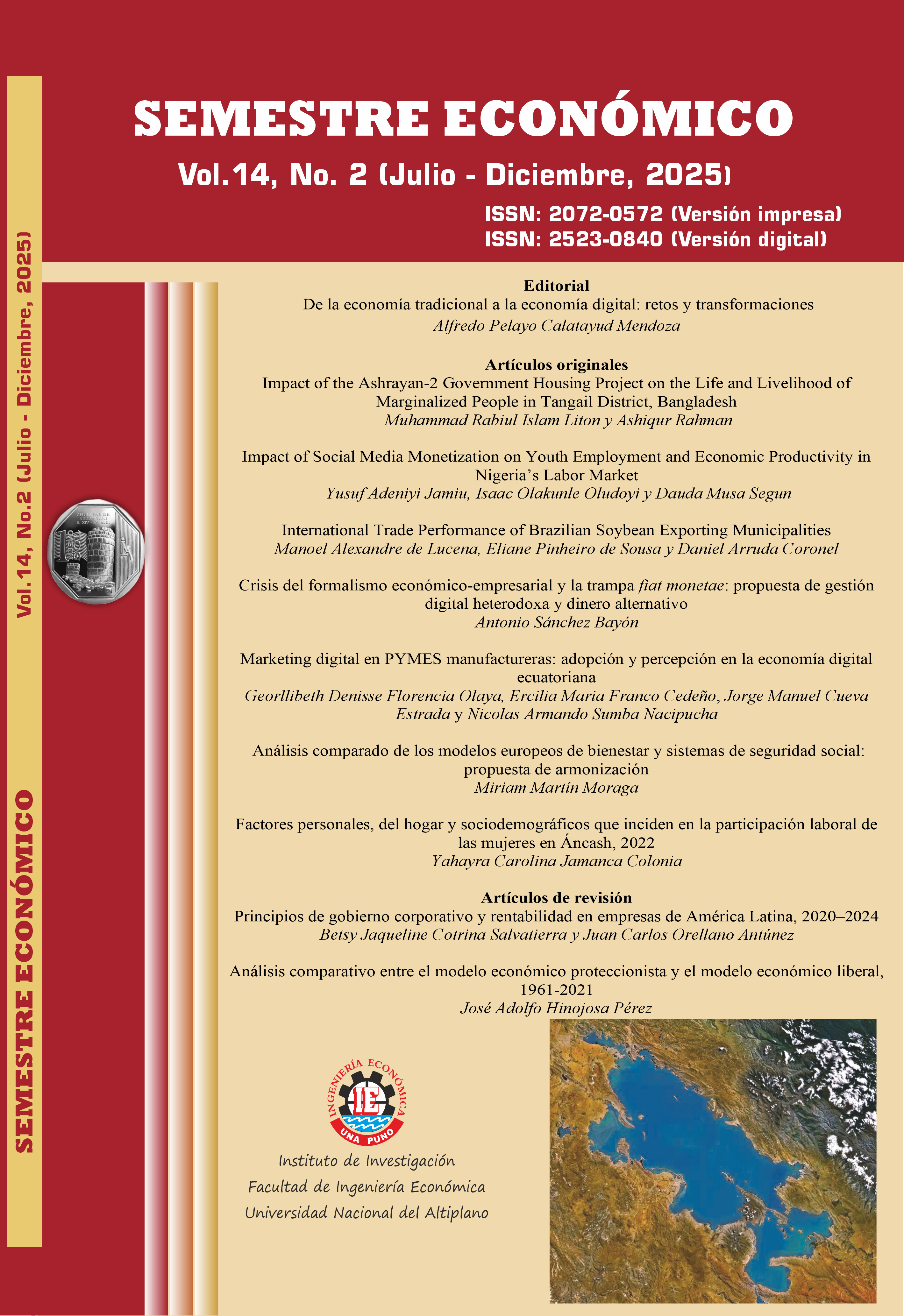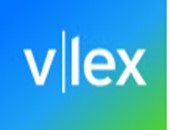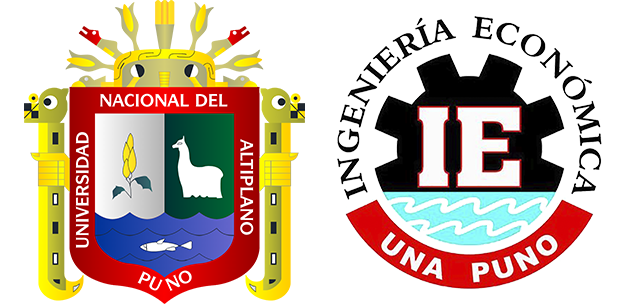From the Traditional Economy to the Digital Economy:Challenges and Transformations
DOI:
https://doi.org/10.26867/se.2025.v14i2.186Keywords:
Digital economy, productivity and employment, e-commerce, public policiesAbstract
The digital economy represents a structural transformation that redefines the foundations of economic theory through the convergence of big data, artificial intelligence (AI), digital platforms, and disruptive technologies. This shift impacts production, trade, macroeconomic measurement, logistics, education, and the labor market. E-commerce is gradually displacing physical markets and poses regulatory challenges, while indicators such as GDP show limitations in capturing the value of intangible assets, data, and free digital services. Consequently, metrics such as GDP-B and the inclusion of data capital in national accounts have been proposed. Sectors like agriculture and healthcare are adopting AI and machine learning to optimize processes and reduce costs. The labor market is being reshaped by automation, remote work, and the platform economy, creating opportunities in digital jobs while also increasing risks of precarious work, which requires policies focused on training and technological reskilling. Education, in turn, must foster digital skills and critical thinking through tools like Google Colab and EdTech platforms. Reducing the digital divide, ensuring equity, and updating regulatory frameworks are key conditions for inclusive development in the digital economy of the
21st century
References
Bank for International Settlements (BIS). (2023). Annual Economic Report. BIS.
Brynjolfsson, E., & McAfee, A. (2014). The second machine age: Work, progress, and prosperity in a time of brilliant technologies. W.W. Norton & Company.
Brynjolfsson, E., Collis, A., & Eggers, F. (2019). GDP-B: Accounting for the value of new and free goods in the digital economy. NBER Working Paper Series, (25695). National Bureau of Economic Research.
Coyle, D., & Mitra-Kahn, B. (2020). Making the future count: GDP and the digital economy. Oxford Review of Economic Policy, 36(3), 627–645.
Goldin, C., & Katz, L. F. (2008). The race between education and technology. Harvard University Press.
Kenney, M., & Zysman, J. (2020). The platform economy: Restructuring work and value in the digital age. Cambridge University Press.
Organisation for Economic Co-operation and Development (OECD). (2019). Measuring the digital economy: A new perspective. OECD Publishing.
Organisation for Economic Co-operation and Development (OECD). (2023). Going digital: Shaping policies, improving lives. OECD Publishing.
Rifkin, J. (2014). The zero marginal cost society: The internet of things, the collaborative commons, and the eclipse of capitalism. Palgrave Macmillan.
Tapscott, D., & Tapscott, A. (2022). Blockchain and the digital economy. Portfolio.
United Nations Conference on Trade and Development (UNCTAD). (2023). Digital economy report 2023: Value creation and capture. United Nations.
Varian, H. (2019). Artificial intelligence, economics, and industrial organization. In A. Agrawal, J. Gans, & A. Goldfarb (Eds.), The economics of artificial intelligence: An agenda (pp. 399–419). University of Chicago Press.
OECD. (2019). Going digital: Shaping policies, improving lives. OECD Publishing. https://doi.org/10.1787/9789264312012-en
Downloads
Published
Issue
Section
License
Copyright (c) 2025 Alfredo Pelayo Calatayud Mendoza

This work is licensed under a Creative Commons Attribution 4.0 International License.














